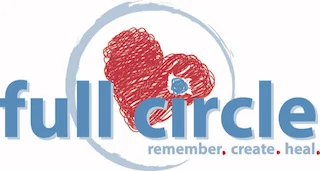Virginia Local Accident Resources
Virginia Local Accident Resources
Did a Loved One Die in a Virginia Car Accident Today?
At Local Accident Reports, we are dedicated to easing your burdens during this difficult time. Let us connect you and your family with the resources you need to ease your worries and help you move forward. Coping with the loss of a loved one due to a wrongful death incident can change life in profound ways, and the journey forward often feels daunting. For families in Virginia dealing with such tragedies, numerous support resources are available to help you find financial stability and emotional comfort during these difficult moments. This guide outlines vital sources of assistance, offering insights on accessing immediate relief and planning for long-term recovery. Additionally, you’ll find practical tips for what to do in the aftermath of such a tragedy, especially when the death of your loved one was caused by a negligent driver.
When a Fatal Accident Leaves You Without Income
If you have lost your family’s primary income provider due to a wrongful death, several resources may provide the financial assistance you need during this difficult time. Here are some key options:
- Social Security Survivor Benefits: Surviving spouses and children may qualify for Social Security survivor benefits. Contact the Social Security Administration at SSA.gov or call 1-800-772-1213.
- Temporary Assistance for Needy Families (TANF) Virginia: This program provides financial aid to low-income families. Learn more through the Virginia Department of Social Services at Virginia DSS or call 1-804-726-7000.
- Virginia Medicaid (FAMIS for Children and Families): Health coverage for low-income families, helping cover medical expenses during difficult times. Apply at Cover Virginia or call 1-855-242-8282.
Obtaining an Official Police Report for Your Accident
For individuals involved in a Virginia wrongful death accident, there are three main ways to secure a copy of the police report, which is crucial for any insurance or legal claims. You can submit a written request or a completed Information Request Form (CRD 93) via mail, fax, or in person, along with the applicable payment. Alternatively, you can contact our office, and a local car accident attorney that we work with may be able to provide you with a complimentary copy of the report.
Emotional Support After an Accident The emotional scars of losing a loved one can be longer-lasting. If you need assistance coping with the emotional aftermath of a wrongful death accident, consider these resources:
- NAMI Virginia: The National Alliance on Mental Illness offers a support hotline and educational resources to help those dealing with trauma or stress after a severe accident.
- Virginia Support Groups: Support groups and mental health professionals in Virginia can connect you with the help you need to process and heal from emotional challenges following an accident.
Virginia Wrongful Death FAQs
What is a wrongful death claim?
A wrongful death claim in Virginia is a civil lawsuit filed by family members or other eligible parties on behalf of a deceased person who has died as a result of another party’s negligence, recklessness, or intentional act. The purpose of the lawsuit is to seek compensation for the damages incurred by the surviving family members, such as loss of companionship, financial support, and emotional suffering.
Unlike criminal cases, wrongful death claims do not aim to punish the wrongdoer with imprisonment but instead focus on providing financial relief to the decedent’s survivors.
What situations commonly lead to wrongful death claims?
Wrongful death claims can arise from a variety of incidents, including:
- Motor Vehicle Accidents: Car, truck, and motorcycle accidents are common causes of wrongful death claims, especially if they were caused by negligent behavior such as drunk driving, speeding, or distracted driving.
- Medical Malpractice: When healthcare providers fail to uphold the standard of care, leading to the patient’s death, the family may pursue a wrongful death claim for medical malpractice.
- Workplace Accidents: In cases where a fatality occurs due to unsafe working conditions, inadequate training, or equipment failure, families may have grounds for a wrongful death claim against the employer or a third-party contractor.
- Defective Products: If a dangerous or defective product causes fatal injuries, the manufacturer, distributor, or seller may be held liable in a wrongful death lawsuit.
- Premises Liability Incidents: Fatal accidents can occur due to unsafe property conditions, such as lack of maintenance, inadequate security, or hazardous structures.
Each situation requires specific evidence to establish negligence or fault, and consulting with a wrongful death attorney can help identify the necessary documentation and steps.
Who can file a wrongful death claim in Virginia?
In Virginia, the right to file a wrongful death lawsuit is reserved for the personal representative of the deceased person’s estate. This representative may be named in the decedent’s will, but the court can appoint one if there is no will or representative named. Although only the personal representative can formally file the lawsuit, the claim is pursued on behalf of the deceased person’s statutory beneficiaries.
Virginia law specifies the following order of priority for beneficiaries:
- Surviving spouse and children: If the deceased was married and/or had children, these individuals typically receive priority.
- Parents, siblings, and other family members: If there is no surviving spouse or child, then parents, siblings, or other extended family members may qualify as beneficiaries.
Understanding this hierarchy is crucial, as only those with standing as beneficiaries are eligible to receive any compensation awarded in a wrongful death lawsuit.
What damages are available in a Virginia wrongful death lawsuit?
Virginia law allows for various types of damages in a wrongful death lawsuit, which can include:
- Compensatory Damages:
- Loss of Income and Financial Support: This covers the wages and benefits the deceased would have provided to their family if they had survived.
- Loss of Services and Protection: This compensation is for the loss of guidance, protection, and services the deceased would have provided.
- Funeral and Burial Expenses: Reasonable costs for the funeral and burial of the deceased can be claimed.
- Emotional and Personal Losses:
- Loss of Companionship: This compensates for the loss of love, affection, and companionship experienced by surviving family members.
- Mental Anguish and Suffering: Family members can also seek compensation for their emotional pain and suffering as a result of losing their loved one.
- Punitive Damages: In cases where the defendant’s actions were particularly reckless, intentional, or egregious, punitive damages may be awarded to punish the wrongdoer and deter similar behavior in the future.
The types and amounts of damages awarded vary based on the specific circumstances and the severity of the negligence or wrongdoing.
How is the compensation distributed among family members?
The compensation awarded in a wrongful death lawsuit is distributed according to Virginia’s statutes. Typically, the court will order the funds to be divided among the eligible beneficiaries based on their relationship with the deceased and the loss level each suffered. Sometimes, the court may appoint a special commissioner to evaluate each family member’s losses and allocate compensation fairly.
For instance, if the deceased leaves behind a spouse and children, their compensation will likely be divided. If no immediate family members are present, extended family members may be eligible to receive the award.
How long do I have to file a wrongful death lawsuit in Virginia?
In Virginia, the statute of limitations for filing a wrongful death lawsuit is two years from the date of the deceased person’s death. This means the personal representative must file the claim within this time frame to preserve the right to seek compensation. Failing to file within the statute of limitations generally results in the case being dismissed, with rare exceptions for extenuating circumstances.
Since wrongful death claims can take time to investigate, compile evidence, and prepare for court, it’s advisable to consult an attorney as soon as possible after the loved one’s death.
How do you prove fault in a wrongful death case?
To successfully pursue a wrongful death claim in Virginia, the plaintiff must prove that the defendant’s negligence or intentional actions caused the decedent’s death. The key elements that need to be demonstrated are:
- Duty of Care: Showing that the defendant had a legal duty to act in a manner that would not harm others (for example, drivers have a duty to follow traffic laws).
- Breach of Duty: Establishing that the defendant failed to uphold this duty, either through negligent or intentional actions.
- Causation: Proving that the breach of duty directly caused the deceased person’s death.
- Damages: Documenting the financial and emotional damages suffered by the surviving family members as a result of the death.
These elements require comprehensive evidence, which may include eyewitness testimony, accident reports, medical records, and expert analysis.
What role does an attorney play in a wrongful death case?
An experienced wrongful death attorney can provide critical support throughout the legal process. The attorney’s role includes:
- Case Evaluation and Legal Advice: Determining if a wrongful death claim is viable and advising on legal options.
- Gathering Evidence: Collecting crucial evidence to build a strong case, including accident reports, witness statements, and medical records.
- Negotiating with Insurance Companies: Wrongful death cases often involve insurance companies that may try to minimize payouts. An attorney can negotiate on behalf of the family to secure a fair settlement.
- Representing in Court: If the case goes to trial, an attorney will present the case before the court and advocate for the family’s right to compensation.
Legal representation helps families receive the guidance and resources necessary to navigate the complexities of a wrongful death claim.
Can you settle a wrongful death claim out of court?
Yes, many wrongful death claims are resolved through settlements rather than court trials. Settling a wrongful death claim can save time, reduce legal expenses, and provide families with faster financial relief. However, it’s crucial to approach settlement negotiations carefully and understand that insurance companies may initially offer lower settlements to save costs.
An attorney can help negotiate a settlement that reflects the full extent of the family’s losses. If the settlement offer does not meet the family’s needs, pursuing the case in court may be a better option.
What are common defenses in wrongful death claims?
In wrongful death claims, defendants may use several common defenses to avoid liability or reduce the compensation owed. These defenses include:
- Comparative Negligence: The defendant may argue that the deceased person’s own negligence contributed to their death, which could reduce the damages awarded based on Virginia’s contributory negligence laws.
- Assumption of Risk: If the deceased person knowingly engaged in a risky activity, the defendant may argue that they assumed the risk and should not be held responsible.
- Lack of Causation: The defendant may contend that their actions were not the direct cause of the deceased person’s death and that other factors were involved.
Understanding these potential defenses can help families and their legal team build a more robust case.
How much does it cost to file a wrongful death lawsuit?
Most wrongful death attorneys work on a contingency fee basis, which means they do not charge upfront fees and instead take a percentage of the compensation awarded if they win the case. This arrangement makes it easier for families to pursue justice without significant financial risks. The percentage typically ranges from 25% to 40% of the award, depending on the case’s complexity.
Can you file a wrongful death claim if criminal charges are pending?
Yes, wrongful death claims can proceed regardless of any criminal charges related to the incident. A wrongful death claim is a civil matter, while the state pursues criminal charges. Even if the defendant is acquitted in a criminal case, the family may still pursue a civil wrongful death claim, as the burden of proof is different and lower in civil cases.
Virginia Traffic Collision Statistics
Virginia’s traffic collision statistics reveal critical insights into road safety trends, common accident causes, and the demographics most affected by vehicle crashes. Analyzing these statistics provides valuable information for policymakers, law enforcement, and the public as they work to improve road safety. This article delves into key aspects of Virginia’s traffic collision statistics, including accident rates, causes, injury and fatality statistics, and the efforts to reduce these incidents.
Overview of Traffic Collision Statistics in Virginia
Virginia has seen fluctuations in traffic collisions over recent years, influenced by a range of factors, including population growth, changes in road infrastructure, and evolving driving behaviors. According to the Virginia Department of Motor Vehicles, though a common occurrence, traffic collisions continue to impact individuals and the state’s infrastructure significantly. The DMV regularly compiles data on these incidents to help identify trends and establish benchmarks for safety measures.
Accident Rates and Trends
The Virginia DMV releases comprehensive data on the state’s traffic accidents each year. Recent reports indicate that, on average, the state experiences over 100,000 collisions annually, resulting in tens of thousands of injuries and hundreds of fatalities. These numbers provide a window into the risks associated with Virginia’s roadways and underscore the need for focused intervention in accident-prone areas. Specific trends have emerged from a year-to-year perspective. For example, Virginia experienced a slight decline in accidents during 2020, likely due to the COVID-19 pandemic and related travel restrictions. However, with the return to pre-pandemic activity levels, the state has observed a gradual increase in traffic volumes and accidents. Trends show a persistent risk associated with urban areas, which report higher accident rates due to increased congestion, higher pedestrian traffic, and greater interaction between various types of vehicles.
Leading Causes of Traffic Collisions
Understanding the main causes of traffic collisions is essential for creating effective safety measures. Virginia’s accident data reveals several primary causes, including:
- Distracted Driving: This is one of the leading causes of accidents in Virginia. Despite efforts to raise awareness about the dangers of using mobile devices, eating, or engaging in other distractions while driving, distracted driving remains a significant risk. The Virginia DMV reports that distracted driving contributes to thousands of collisions each year, many of which result in serious injuries or fatalities.
- Speeding: Excessive speed is another major factor in Virginia’s traffic collisions. Speeding reduces a driver’s reaction time and increases the force of impact in the event of a crash, often leading to severe injuries or fatalities. Data indicates that younger drivers are more likely to be involved in speed-related collisions, although this issue affects drivers across all age groups.
- Alcohol-Impaired Driving: Drunk driving continues to be a dangerous behavior on Virginia’s roads, contributing to a significant percentage of fatal accidents. The legal Blood Alcohol Concentration (BAC) limit in Virginia is 0.08% for adults, but even lower levels of impairment can increase the risk of a crash. DUI offenses not only lead to legal consequences but also carry a high risk of fatality, both for the impaired driver and others on the road.
- Reckless and Aggressive Driving: This category includes tailgating, weaving through traffic, and ignoring traffic signals. These actions are particularly hazardous in urban areas with higher vehicle and pedestrian traffic. Aggressive driving can also provoke road rage incidents, increasing the likelihood of accidents.
- Weather Conditions: Virginia’s weather patterns can contribute to dangerous driving conditions, especially during winter when ice and snow accumulate on roadways. Wet, slippery roads make it difficult for drivers to maintain control of their vehicles, leading to an increased risk of collisions. Data shows a spike in accidents during adverse weather, highlighting the need for driver caution and awareness in poor conditions.
Demographics and High-Risk Groups
Certain demographics and groups are at a higher risk of being involved in traffic collisions. Virginia’s statistics indicate that young drivers, particularly those under the age of 25, are disproportionately involved in accidents. This is often attributed to inexperience, risk-taking behaviors, and a tendency to engage in distracted driving. On the other end of the spectrum, elderly drivers face unique challenges that may increase their risk, such as slower reaction times and age-related health issues. Motorcyclists, bicyclists, and pedestrians are also high-risk groups. Due to their lack of protection compared to drivers in enclosed vehicles, they are more likely to sustain severe injuries or fatalities in the event of an accident. Virginia has seen a push to improve road safety measures for these vulnerable groups, including the implementation of bike lanes and pedestrian crossings in busy areas.
Injury and Fatality Statistics
Traffic collisions in Virginia lead to thousands of injuries and hundreds of fatalities each year. The severity of injuries varies widely, from minor cuts and bruises to life-altering traumatic injuries and deaths. Recent data highlights several key trends in injury and fatality statistics:
- Fatal Accidents: Virginia reports hundreds of fatal traffic accidents annually, with many of these incidents involving alcohol or excessive speed. Fatal accidents are more common on rural roads due to higher speed limits and limited lighting.
- Serious Injuries: Many collisions result in serious, often debilitating injuries, including traumatic brain injuries, spinal cord injuries, and fractures. These injuries can have lasting impacts on victims and their families, leading to high medical costs and long-term rehabilitation needs.
- Pedestrian and Cyclist Fatalities: Although the overall number of traffic fatalities has shown some fluctuations, pedestrian and cyclist fatalities remain a significant concern. These vulnerable road users are at higher risk due to limited visibility and a lack of physical protection.
Virginia Grief & Trauma Resources
Resources by State
- Alabama
- Alaska
- Arizona
- Arkansas
- California
- Colorado
- Connecticut
- Delaware
- Florida
- Georgia
- Hawaii
- Idaho
- Illinois
- Indiana
- Iowa
- Kansas
- Kentucky
- Louisiana
- Maine
- Maryland
- Massachusetts
- Michigan
- Minnesota
- Mississippi
- Missouri
- Montana
- Nebraska
- Nevada
- New Hampshire
- New Jersey
- New Mexico
- New York
- North Carolina
- North Dakota
- Ohio
- Oklahoma
- Oregon
- Pennsylvania
- Rhode Island
- South Carolina
- South Dakota
- Tennessee
- Texas
- Utah
- Vermont
- Virginia
- Washington
- West Virginia
- Wisconsin
- Wyoming
Reach Out to Local Accident Reports
Losing a loved one to wrongful death is an unimaginable tragedy, and we understand the challenges you face as you seek resources after your loss. At Local Accident Reports, we are here to support you through every step of the process with compassion, dedication, and skilled advocacy.
If you’ve lost a loved one in a preventable accident, contact Local Accident Reports today. Contact us at (888) 657-1460 for a free, compassionate consultation. Let us help you pursue justice and financial security for your family.
Motor Vehicle Crash Deaths by Road User Type and State

Car Occupants
317

Pickup and SUV Occupants
239

Large Truck Occupants
16

Motorcyclists
117

Pedestrians
111










